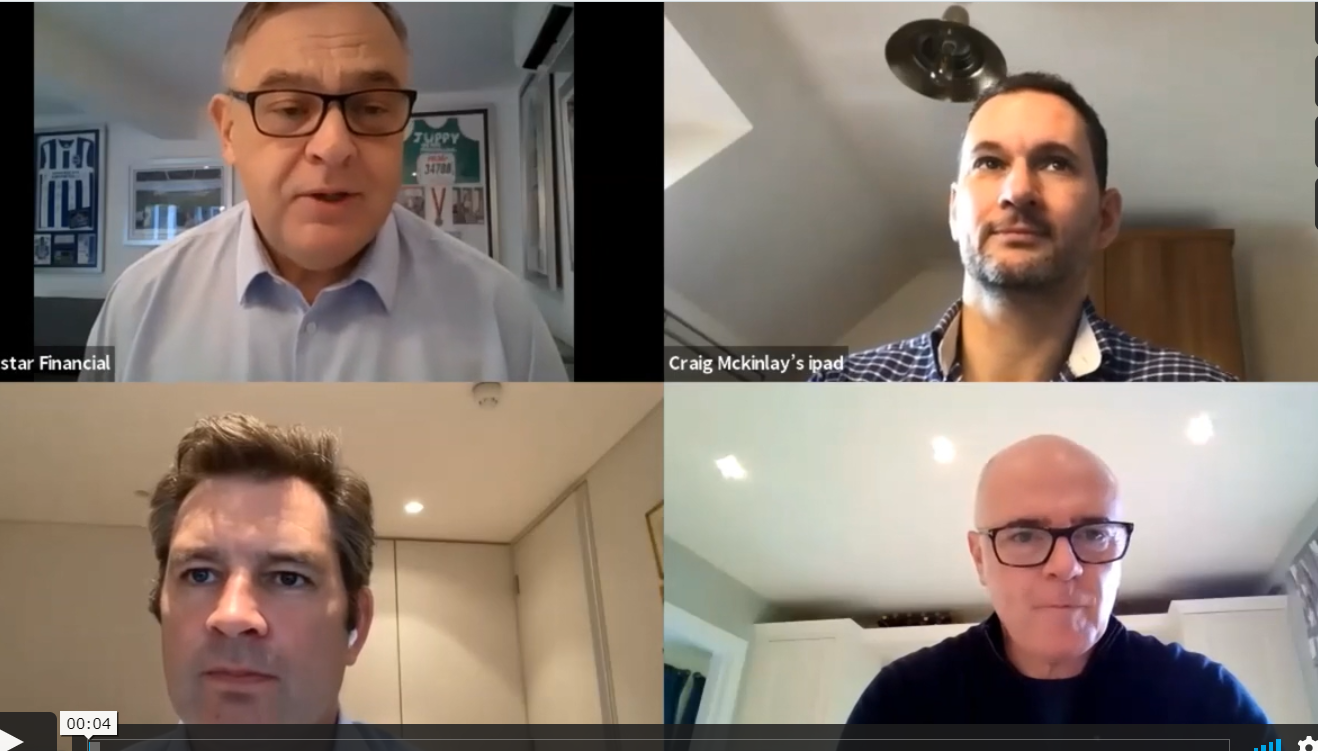
The specialist mortgage sector may see a boom this year, with the big banks looking for a slice of the pie, industry commentators have speculated.
Speaking on the latest Brightstar vlog, hosted by group chief executive Rob Jupp, The Mortgage Lender chief executive Peter Beaumont, Landbay chief executive John Goodall and Kensington Mortgages new business director Craig McKinlay agreed that, while IMLA estimates of £283m in mortgage lending were optimistic for the year, the buy-to-let sector should thrive.
“In a zero-interest rate environment, where do you find yield?”, asked Beaumont.
“All of a sudden where a net yield of 3 per cent out of London looked average or poor, now it looks pretty good. It’s low-risk, long term investment capital breaks via limited company, so where else do you get the yield? It looks pretty attractive again. People might say, well you would talk up the BTL market as I lend into it, but I think I’m factually correct. I’m extending my own portfolio at the moment; why not buy some stuff that’s going to give a decent yield. I think it will be a strong year for BTL.”
Goodall expects BTL to take in more than IMLA’s anticipated £40bn, estimating a figure of £42bn for the sector for the year.
“I think we’ve been stuck at £36bn for the last couple of years but it is attractive yield and people are struggling for yield,” adds MacKinlay.
“I think what people forget about BTL is the fact it’s a leveraged investment. For £400,000 you can go and get £400k worth of stock on a 75 per cent LTV BTL; that’s very attractive and why most people go in. It is tangible and you can see it; with stocks and shares, who knows what’s going on from one day to the next. It [BTL] is so resilient because the underlying fundamentals are so strong.”
When asked by Jupp whether acquisitions of specialist lenders could be a trend in 2021, all three agreed that there was definite appeal there for the large mainstream lenders.
“At some time the large banks are going to think ‘we need to grow, and with something that looks like margin’,” says Goodall. “So they will think, ‘do we need to widen criteria within owner-occupied or look into the specialist BTL market or a combination of both. To do that they’ll either partner with someone, buy something or start up themselves.”
“The PRA suggested it was going to look at the sector and review the prudential requirements on lenders. I’ve got a feeling they’re going to want to see more skin in the game; that’s just a feeling,” says Beaumont.
“On the other side of the coin there are lenders out there that have gotten a lot of cheap treasury money who want to fund and therefore they may be looking for a platform and fancy owning it rather than having a distribution agreement with them, they may find it’s a good time to do that.
“In securitisations, of course some lenders have to put more cash into those deals now, so I think there are reasons why we could see more acquisitions.
MacKinlay says with quantitive easing, asset prices have risen so buyers could get a good price for the specialists.
“Potentially it’s a good time to sell as a specialist lender because with the quantitive easing asset prices have risen so potentially you get quite a good price. Now we have banks with lots of cheap funding and specialist lenders with high margins and when you put those things together, margins get bigger.”
All contributors to the vlog believe that the residential purchase market will slow after the stamp duty holiday deadline on 31 March.
MacKinlay and Kensington Mortgages have been involved in lobbying the government to make the tax break permanent.



